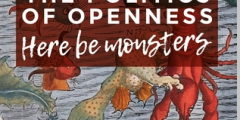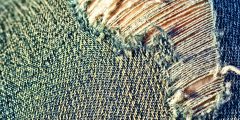Historical fiction: A forgotten corner of science communication?
January 26, 2018
I recently read a wonderful tale about a 10th-century Arab philosopher, theologian and mathematician, Ibn al-Haytham (Alhazen). This wasn’t a biography (although I read that as well, afterwards); it was historical fiction – a historical novel. The tale was told by Bradley Steffens and entitled The Prisoner of Al-Hakim (2017). Immersed in the novel, I learned, …
Frankenstein is about US not STEM
January 19, 2018
I was reading my tweets the other day and came across this one: “I am reading the octopus book. My main hobby now is looking up from the octopus book in order to share octofacts.” This is popular science (communication) at its best.* It also made me think. If readers of Mary Shelley’s Frankenstein (1818) had …
Making science public: Our edited collection
January 5, 2018
As our Making Making Science Public programme has come to an end, it’s time to take stock across all projects and beyond. This is exactly what we have done in an (open access) book coming out with Manchester University Press in January, entitled Science and the Politics of Openness: Here be monsters. The chapters in …
Promises, promises, promises
December 28, 2017
It all started with this tweet – a conversation between Oliver Morton, Jack Stilgoe and David Keith about the hopes and fears related to geoengineering. In this conversation, they stumbled against the words ‘promise’ and ‘promising’, with Oliver and Keith interpreting them in terms of ordinary language use, while Jack interpreted them also in terms …
Making Science Public: End of year round-up, 2017
December 15, 2017
This is my sixth end-of-year blog post for the Making Science Public blog. A lot has changed since I posted my first one at the end of 2012 (and this post is my 307th). The Making Science Public programme, funded by the Leverhulme Trust, has virtually come to an end but the topics it began …
Biology and sociology: estrangement and entanglement
December 8, 2017
Ever since my PhD, I have been fascinated by the interplay, interrelations, mutual inspirations, struggle and strife between various disciplines that began to establish themselves during the 19th century, such as linguistics (which became the focus of my research), sociology, biology and so on. In recent years, a little flood of literature has emerged that …
Climate alarmism and climate realism
November 24, 2017
In 2013 I wrote a blog post on climate alarmism and a year later one on its conceptual and ideological twin climate realism. A week ago, a comment by Jeffrey Levine appeared underneath my second post on climate realism which said: “We’re now three years out from the original date of this post. The usage of climate …










